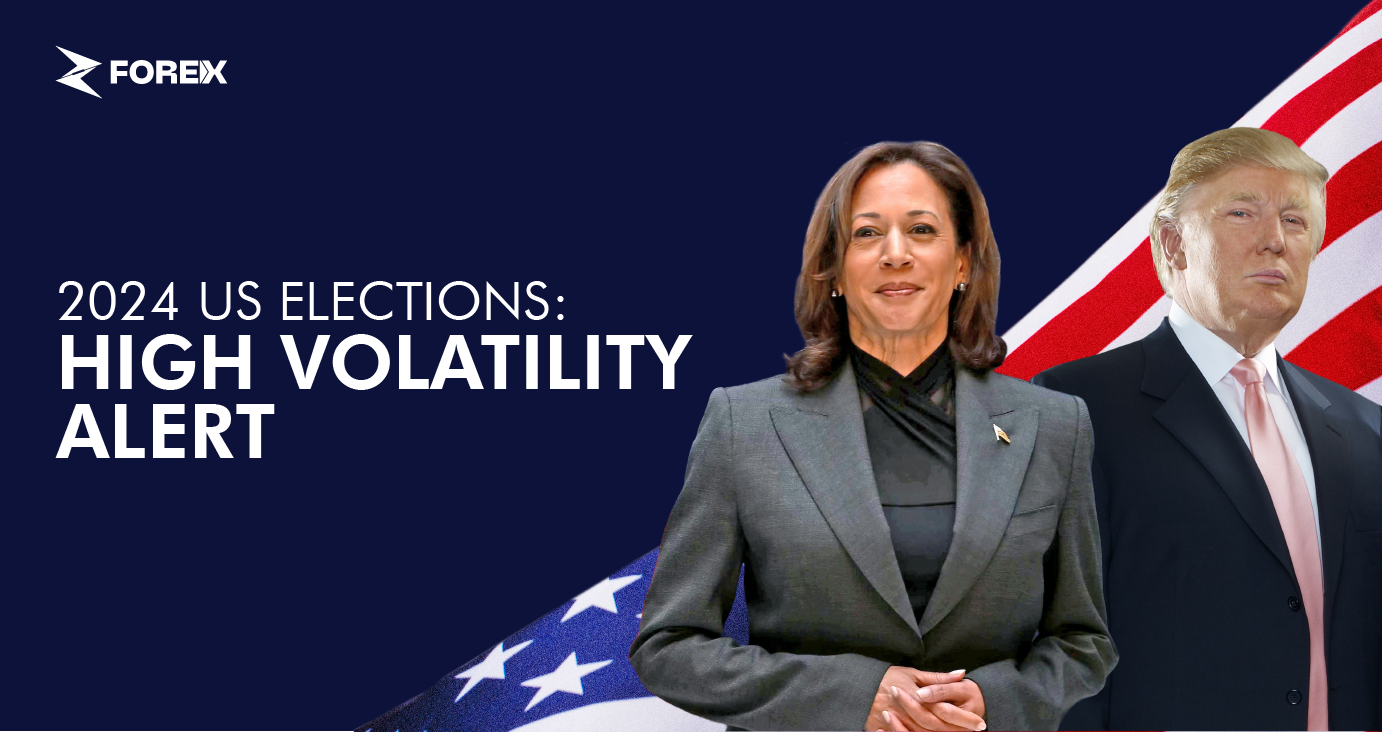The upcoming U.S. presidential election on November 5, 2024, is anticipated to introduce significant volatility across financial markets. Historically, elections have influenced market dynamics, and the current race between Vice President Kamala Harris and former President Donald Trump is no exception.

Recent analyses suggest that a Trump victory could benefit equity markets in the short term, particularly sectors like banking, cryptocurrency, energy, and health insurance, due to his pro-business policies. Conversely, Harris's policies might favor sectors such as homebuilding, healthcare, and renewable energy, focusing on tax incentives, healthcare cost reductions, and environmental commitments.
Investors are preparing for potential market fluctuations, with volatility indices reflecting heightened uncertainty. The Ice BofA Move index, indicating future Treasury market movements, surged nearly 40% in October, reaching its highest in over a year. Similarly, the VIX index, which measures stock market volatility, has shown unusual highs relative to actual volatility.
Given these conditions, it's recommended for investors to monitor their portfolios closely and consider strategies to mitigate potential risks. Maintaining adequate liquidity and staying informed about market developments can help navigate the anticipated volatility during this election period.
Markets traded cautiously ahead of key inflation data and amid ongoing trade and geopolitical uncertainty.
Markets remained cautious as a new 10% U.S. global tariff weighed on risk sentiment. The euro and pound stayed under pressure near recent lows, while the yen rebounded on renewed speculation around Bank of Japan tightening.
Global markets remained cautious as a new 10% U.S. global tariff came into force, keeping trade uncertainty at the center of investor focus.
Then Join Our Telegram Channel and Subscribe Our Trading Signals Newsletter for Free!
Join Us On Telegram!